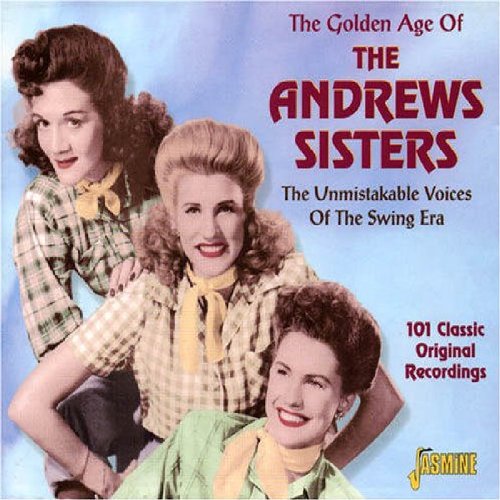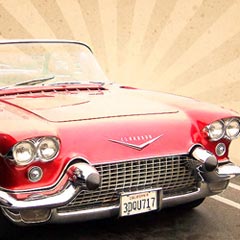2022-01-01
João Gilberto: The Father of Bossa Nova
When discussing one of the most influential musicians in the Brazilian music genre, it certainly isn't complete without mentioning João Gilberto. Extolled as “The Father of Bossa Nova” for his hybridization of samba and jazz, João emerged at a pivotal point where Latin American music was gaining global attention like never before. His revolutionary approach to South American styles has endured for over 60 years – but that's not to say he is entirely perfect. Throughout his career, João critiqued heavily by some within the industry and beloved by others; while some noted harshness along with technicality in his style, other listeners found solace and charm in every song. So join us today as we dive into both negative aspects which defined João's career and sweetly relate to why he is considered such an immortal force in today’s Latin music scene!
João Gilberto is undoubtedly one of the most influential musicians in the Brazilian music genre. He is known for his revolutionary approach to South American styles by introducing a style that combined samba and jazz. His contributions to Latin American music will always be celebrated, but his career was not without its criticisms. Despite his technical abilities, João was often noted for his harshness in style, but still, he remains an immortal force in today’s Latin music scene. In this blog post, we will explore both the negative and positive aspects of João Gilberto's career, and why he is still a vital part of Brazil's music history.
João Gilberto is credited with developing the Bossa Nova style of music that has gained global popularity. The Father of Bossa Nova changed the music industry by fusing jazz and samba into one sweet musical genre. His approach was revolutionary, and it gained worldwide recognition when he released the album Chega de Saudade in 1959. With this album, Gilberto introduced the rest of the world to an entirely new type of music that has since become one of the most popular Latin American music styles. His soft, melodic voice became the hallmark of Bossa Nova music, and his style of guitar playing changed the way the instrument was used in music.
Despite the success that João Gilberto enjoyed for his contributions to the Brazilian music genre, his career was not immune to criticism. Some people found his song technique too technical, leading to allegations that he lacked the natural rhythm that is characteristic of Brazil's traditional music. João's style of playing was also criticized for being too harsh and cold. Even with these criticisms, he remained a leading figure in Brazilian music. His style has been emulated by many musicians who have tried to create a signature sound similar to his.
The influence of João Gilberto on Brazilian music goes beyond his introduction of Bossa Nova. Over the years, he has inspired and mentored many of Brazil's leading musical talents. The likes of Caetano Veloso and Gilberto Gil are among the many artists who have recognized the influence that João Gilberto had on their careers. In 2008, Gilberto received the Latin Grammy Lifetime Achievement award in recognition of his contribution to the music industry. His work has stood the test of time, and it is still embraced by many, all over the world.
João Gilberto's contribution to Brazilian music, and the music industry in general, is undeniable. His innovative approach to music changed the game and has stood the test of time. Despite the criticism he faced, his style is still one of the most emulated and celebrated in Latin America and beyond. His legacy is alive and well in the Brazilian music scene, and he will always be remembered as The Father of Bossa Nova.
João Gilberto is undoubtedly one of the most influential musicians in the Brazilian music genre. He is known for his revolutionary approach to South American styles by introducing a style that combined samba and jazz. His contributions to Latin American music will always be celebrated, but his career was not without its criticisms. Despite his technical abilities, João was often noted for his harshness in style, but still, he remains an immortal force in today’s Latin music scene. In this blog post, we will explore both the negative and positive aspects of João Gilberto's career, and why he is still a vital part of Brazil's music history.
João Gilberto is credited with developing the Bossa Nova style of music that has gained global popularity. The Father of Bossa Nova changed the music industry by fusing jazz and samba into one sweet musical genre. His approach was revolutionary, and it gained worldwide recognition when he released the album Chega de Saudade in 1959. With this album, Gilberto introduced the rest of the world to an entirely new type of music that has since become one of the most popular Latin American music styles. His soft, melodic voice became the hallmark of Bossa Nova music, and his style of guitar playing changed the way the instrument was used in music.
Despite the success that João Gilberto enjoyed for his contributions to the Brazilian music genre, his career was not immune to criticism. Some people found his song technique too technical, leading to allegations that he lacked the natural rhythm that is characteristic of Brazil's traditional music. João's style of playing was also criticized for being too harsh and cold. Even with these criticisms, he remained a leading figure in Brazilian music. His style has been emulated by many musicians who have tried to create a signature sound similar to his.
The influence of João Gilberto on Brazilian music goes beyond his introduction of Bossa Nova. Over the years, he has inspired and mentored many of Brazil's leading musical talents. The likes of Caetano Veloso and Gilberto Gil are among the many artists who have recognized the influence that João Gilberto had on their careers. In 2008, Gilberto received the Latin Grammy Lifetime Achievement award in recognition of his contribution to the music industry. His work has stood the test of time, and it is still embraced by many, all over the world.
João Gilberto's contribution to Brazilian music, and the music industry in general, is undeniable. His innovative approach to music changed the game and has stood the test of time. Despite the criticism he faced, his style is still one of the most emulated and celebrated in Latin America and beyond. His legacy is alive and well in the Brazilian music scene, and he will always be remembered as The Father of Bossa Nova.
Tag: João Gilberto, music artist, best songs, artist career
2022-11-01
The Fascinating Musical Biography of Boards of Canada
Are you into electronic music? If so, you should know Boards of Canada, one of the most renowned electronic bands of all time. This music duo has been around for more than three decades, producing legendary music that influenced the genre and helped define what modern electronic music is today...read more
2022-01-01
An In-Depth Look into The Blood Brothers’ Critical and Commendable Moments
The Blood Brothers were an iconic post-hardcore band that formed in Seattle, Washington in 1997. Their music was greatly appealing and influential to genres like emo and post-punk that followed after them...read more
2022-11-01
The Musical Journey of Nathan Fake: From Beginner to a Legend
Nathan Fake, the British musician, and producer, has developed a strong reputation for his electronic music since the early 2000s. He has undoubtedly made a solid mark in the industry, giving music enthusiasts jam after jam, and a new perspective on electronic music...read more
2023-10-14
The Deeper Meanings Behind Awolnation's Catchy Music
We all know that artist Awolnation makes some pretty awesome music… but have you ever stopped to think about the lyrics? Sure, they may be catchy and totally bumping when you blast the song from your car speakers – but if you listen carefully (which we don't often do), there's a lot more going on underneath the surface! Let's take a humorous look atAwolnation as an artist and delve into some of their deeper messages in order to get a better understanding.We've all been there...read more
2022-11-01
The Musical Journey of Carol: From Humble Beginnings to Iconic Hits
As music listeners, we all have our fair share of favorite artists that we practically worship. Today, we're going to dive into the life of Carol, a music icon whose talent has crossed numerous borders and enchanted the world with her jaw-dropping performances...read more
SUGGESTED PLAYLISTS








